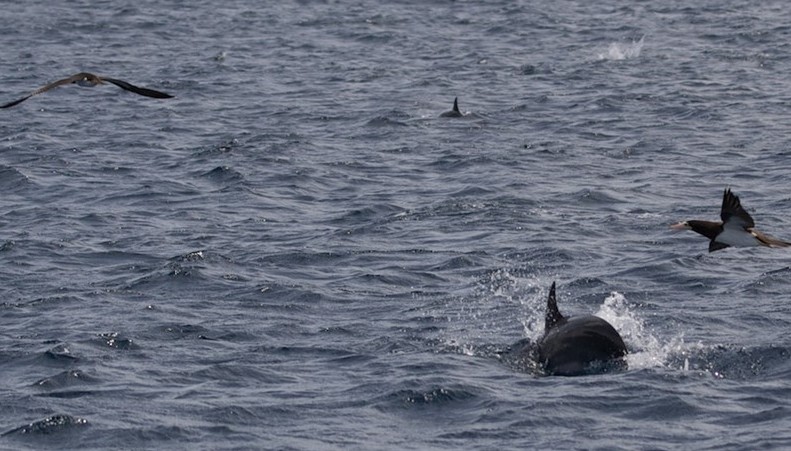Working on research vessels doing long-distance surveys for sharks, whales and dolphins means that you spend a lot of your time observing and recording. In turn, this suggests to ‘amateur’ onlookers that you’re some kind of magician, with a sixth sense of where and when animals will appear.
Not so – you’re just massively increasing the likelihood that you will see wildlife, simply by dint of the fact that you’re looking out all the time, as opposed to looking in – there’s no magic to it at all.
And we’ve been heartwarmingly reminded of this over the last few passages, as we’ve been recording seabird sightings for the excellent SeaBC project. Groups of birds circling and diving –‘hurries’ as we used to term them – often indicate the presence of whales, dolphins, sharks or billfish underneath, and we’ve used that knowledge to good effect, enjoying some great encounters as well as gathering some valuable data to help scientists monitor the range and distribution of seabirds around the world.
Gulls, shearwaters, terns, frigate birds, lovely long-tailed tropic birds and others, we’ve enjoyed them all, as well as pilot whales, false killer whales, Atlantic spotted and Clymene dolphins. If we hadn’t been looking out, we’d probably have missed the most of them, so if you think that seas are empty these days – join in with others in the OCC who are recording seabirds for SeaBC – you’ll be richly rewarded in a multitude of ways.
And it’s not just for adults – recording birds is a great way to entertain and engage younger crew members in understanding the wild world, and encouraging them to do something to help preserve it.
And if that isn’t high-tech enough for you…. Why not take a look at joining in on Ocean Sampling Day, June 21st 2014 (the summer solstice)? This project has developed an online tutorial to show you how to take part, and has also developed an app (Android or Apple variants) to go with it. The aim is to develop a baseline resource to help scientists understand microbial diversity and function in the worlds’ oceans.
This article was written for OCC news by Colin Speedie.

